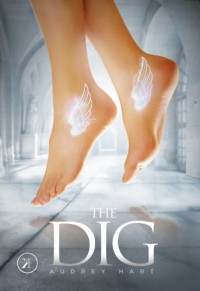Killing Me Slowly
A leopardess who learned how to dance. And read.
 I tried really, really hard to like this book. I wanted to, I wanted to so badly. Around the point where our heroine, Zoe, was using her newly-discovered powers to single-handedly take down the Hydra, I found myself thinking, Oh my God, this is what The Goddess Test should have been. Hallelujah, someone answered my prayers. I was excited - here is a book about a modern girl, who is told that she has to face a series of actual life-or-death trials to maybe become a god or something, IDK, but look a HYDRA! And sure, there's a boy and insta!love, but she doesn't need his saving. In fact, she tells him to book it when she thinks there may be danger. And sure, there are some narrative and coherency issues, but I can muscle through those if this turns out to be The Goddess Test that I've been waiting for.
I tried really, really hard to like this book. I wanted to, I wanted to so badly. Around the point where our heroine, Zoe, was using her newly-discovered powers to single-handedly take down the Hydra, I found myself thinking, Oh my God, this is what The Goddess Test should have been. Hallelujah, someone answered my prayers. I was excited - here is a book about a modern girl, who is told that she has to face a series of actual life-or-death trials to maybe become a god or something, IDK, but look a HYDRA! And sure, there's a boy and insta!love, but she doesn't need his saving. In fact, she tells him to book it when she thinks there may be danger. And sure, there are some narrative and coherency issues, but I can muscle through those if this turns out to be The Goddess Test that I've been waiting for....and then Zoe had finished the trials, and we were only halfway through the book, and things kinda went downhill from there.
But to avoid getting...well, overly rant-y, we're going to look at this in terms of the story. As the summary above suggests, The Dig follows Zoe, a girl who travels to Greece for the summer to assist on her aunt and uncle's archeological dig. Once there, she intentionally wanders off on her first day to explore, and ends up in a room with a giant iPhone mounted on the wall. Except, of course, it's not an iPhone, just some sort of doorway that inexplicably looks like an iPhone, and - again, inexplicably - transports Zoe thousands of years in the past, to ancient Greece. There, she discovers a new-found ability to manipulate the earth, which gets her mistaken for a god.
Yes, she was transported back in time by a not-iPhone. And no, it doesn't really make any sense, nor do we ever get any explanation whatsoever as to why it looked like that, or why Zoe traveled back in time in the first place. But that didn't bother me very much, because let's be honest, any reasoning we get is just going to be an excuse. The author wanted to set a modern story in ancient Greece, it sounded fun, and the rest is just window dressing. Of all the as-yet-unfulfilled plot holes, that concerned me the least.
Plot hole that did bug me a bit? The language. Zoe speaks Greek, I get that, but she mentions briefly that the people she encounters in this ancient era are speaking a much older version of Greek than the one she understands. Her first few conversations are pretty rocky, coming down to awkward one-word exchanges...and then that issue just sort of disappears. Her conversations with every other important character is flawless, natural, to the point that I seriously wondered, "Did I miss some scene where they said that everyone started speaking English?"
I know that language is another one of those time-travel details that gets excused away, but after the initial shock, there's not even an attempt made here at any sort of communication difficulties or "olde" speak. Characters are only confused by the most obvious technological references (movies, Facebook), and many utilize modern idioms and slang. My personal favorite example of this is probably the way the goddess Hera speaks like the teen queen she's supposed to be, passive-aggressively insulting Zoe's clothes and condescendingly calling her "sweetie" and "dear". Does ancient Greek even have an equivalent to those words, with the same kind of catty connotations? And if it did, would Zoe understand it? Dialect is a tricky thing. Ask anyone who's taken a high-school Spanish class and then tried to use it in Mexico.
Then there's Zoe. As far as protagonists go, she kinda gave me trouble from the start. While her characterization is fairly typical for heroines of the YA genre - a Pretty-Ugly loner who doesn't feel she "fits in" with other girls her age - we're blatantly and repeatedly told that this is what Zoe is from the start. By Zoe. Without getting the chance to suss it out for ourselves. It gets old, fast, and gives her a serious likability problem.
I've said it before, but it's incredibly irritating when otherwise potentially likable characters feel the need to drone on and on about how much they don't fit in with other people, and doubly so when they do it with a haughty, condescending attitude. According to Zoe, she isn't like other girls, you see, because other girls are vapid bimbos only concerned with things like Gossip Girl and boys and makeup and celebrities, where as our heroine is sooooooo much better, because she's interested in important and deep things like archaeology.
URGH. This really is the single most unlikable attitude a heroine can have, and I really can't tell if Hart is trying to portray this as Zoe's rationalization for isolating herself from everyone, or if she's honestly trying to capture and express the feelings of neglected bookworms and nerds and teenagers outside the mainstream. Either way, it's incredibly annoying. It turned me off of Zoe's character almost instantly, and the way the plot ultimately ended up going only exacerbated the problem for me.
Fortunately, Zoe's relatively decent sense of humor kept me from wanting to continuously strangle her. She generally reacts to her situation like a normal teenager - sarcasm, fear, despair - and you can relate to her sense of displacement. Her likability issue flares mostly when she has time to reflect on her life at home, so when she's kept otherwise occupied by the plot and other characters, Zoe is generally a tolerable character. Unfortunately, once we hit the romance portion of the book, her actions become a little less relatable.
In a bid to get back to her own time, Zoe is told to seek out the Oracle - and of course, she meets a boy along the way. Almost immediately, Zoe's attraction to the boy begins to detract her from her quest to get home...
Read more at You're Killing.Us.




